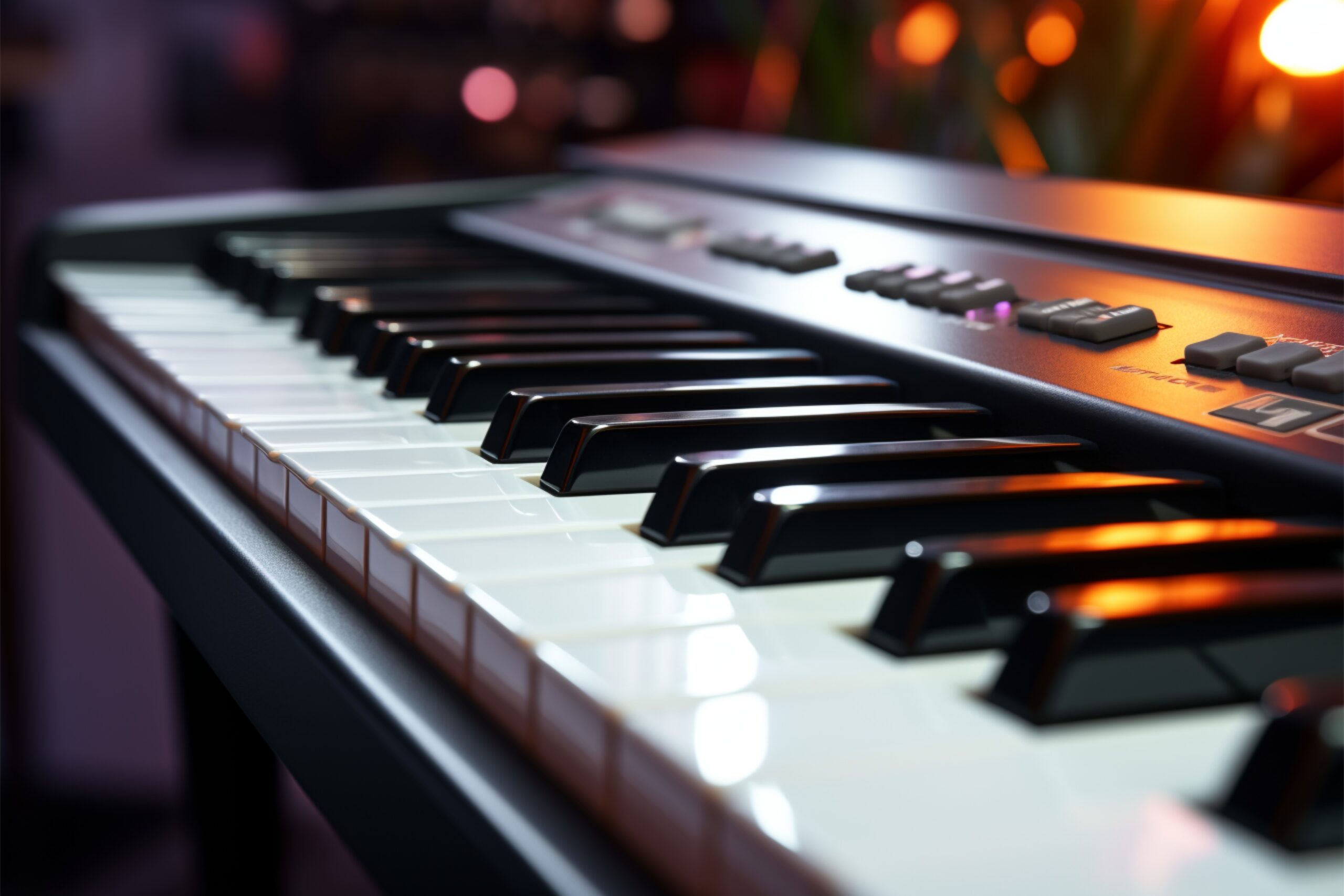Yamaha Corporation stands as a hallmark of innovation and quality in the realm of music. Founded in Japan, this company has successfully merged tradition with modernity, creating a diverse range of musical instruments and equipment that have shaped countless careers and genres. With profound roots in craftsmanship, Yamaha’s journey from a small piano manufacturer to a global powerhouse in the music industry is marked by a commitment to artistic expression and technological advancement. This article delves into Yamaha’s legacy, examining its origins, evolution, and significant contributions to music, while also highlighting its commitment to education, sustainability, and future innovations.
Exploring Yamaha: A Legacy of Musical Innovation in Japan
Yamaha’s story begins in 1887 with a focus on manufacturing pianos. The company’s founder, Torakusu Yamaha, crafted his first piano, paving the way for a legacy that emphasized quality and craftsmanship. Over the decades, Yamaha evolved from producing traditional acoustic instruments to becoming a pioneer in technological advancements in music. From synthesizers to digital audio workstations, Yamaha has consistently been at the forefront of innovation, impacting musicians and composers across multiple generations.
The distinct sound of Yamaha instruments has become synonymous with excellence in music education and performance. Yamaha’s dedication to musical innovation is not merely a story of products but also of cultural influence. The company has cultivated a deep connection with musicians, fostering a sense of community through partnerships and events that celebrate music in all its forms. This rich cultural heritage is a testament to Yamaha’s integral role in shaping the music landscape, both in Japan and worldwide.
Yamaha’s commitment to musical innovation extends beyond just product creation; it also encompasses the nurturing of talent and promotion of music as a universal language. The company has actively participated in music education initiatives, encouraging young musicians to explore their creativity while providing the tools necessary for artistic development. Thus, Yamaha’s legacy is multifaceted, intertwining innovation with a responsibility to enrich the global music community.
The distinctiveness of Yamaha’s brand is further defined by its ability to adapt to changing musical landscapes. As musical genres have evolved, so too has Yamaha. The company has been responsive to the burgeoning needs of musicians, whether transitioning from classical to contemporary music or embracing the digital age. Yamaha’s agility in addressing these shifts has allowed it to maintain a leading position in the industry and to continue delivering products that resonate with new generations of musicians.
From its humble beginnings to its status as a revered global brand, Yamaha’s journey is marked by an unwavering dedication to fostering musical expression. This legacy of innovation inspires musicians to push the boundaries of creativity, ensuring that Yamaha remains a household name synonymous with quality and excellence in music.
Through its rich history, Yamaha has not only created instruments but has also built a cultural narrative around music that values collaboration, innovation, and artistic freedom. This legacy is a testament to the enduring power of music and the pivotal role that Yamaha plays in the global music scene.
The Origins of Yamaha: From Pianos to Global Brand
The tale of Yamaha began with the craftsmanship of Torakusu Yamaha in the late 19th century, who was determined to create high-quality musical instruments. His first significant achievement, the upright piano, set the foundation for what would evolve into a globally recognized brand known for its commitment to excellence. Initially focused on pianos, Yamaha quickly gained a reputation for producing instruments that combined beautiful sound with exceptional craftsmanship.
As the company expanded, it diversified its offerings to include a broader range of musical instruments, including organs, brass instruments, and woodwinds. This diversification was driven by a growing demand for musical exploration beyond the piano. Yamaha recognized the importance of catering to various musical tastes and genres, ultimately positioning itself as a comprehensive musical instrument manufacturer.
By the early 20th century, Yamaha had established itself not just as a manufacturer but as a cultural entity in Japan. The company’s commitment to quality and innovation resonated with musicians, educators, and composers alike, contributing to its burgeoning reputation. Yamaha’s involvement in music education during this time further solidified its status as a brand that championed musical learning and expression.
With the onset of World War II, Yamaha faced challenges that tested its resilience. However, the company emerged stronger, expanding its production capabilities and embracing new technologies. The post-war era marked a significant turning point, as Yamaha looked toward international markets, introducing its products to a global audience. This expansion laid the groundwork for Yamaha’s transformation into a multinational corporation.
Throughout the mid-20th century, Yamaha continued to innovate, introducing electric pianos and electronic organs that revolutionized the music landscape. Emphasizing collaboration with musicians and composers, Yamaha played a vital role in the burgeoning pop and rock music scenes of the 1960s and 1970s. The company’s instruments became staples in studios and concert venues, further solidifying its reputation.
Today, Yamaha is not merely a brand but an institution in the music world. Its origins as a piano manufacturer have evolved into a diverse portfolio of products that cater to musicians of all backgrounds. The company’s legacy is marked by a commitment to quality, innovation, and community, ensuring that it remains a vital player in the global music industry.
Yamaha’s Evolution: Adapting to Changing Musical Trends
Yamaha’s journey through musical history has been characterized by its remarkable ability to evolve alongside changing musical trends. As genres emerged and transformed, Yamaha prioritized the development of instruments that not only accommodated these changes but also inspired new forms of musical expression. The company’s foresight in recognizing the need for innovation has been a driving force behind its sustained relevance in the music industry.
In the late 20th century, the rise of electronic music presented new challenges and opportunities for instrument manufacturers. Yamaha seized the moment, introducing synthesizers such as the DX7, which became a defining sound in pop music during the 1980s. This digital synthesizer offered musicians a new creative tool, allowing them to explore uncharted sonic landscapes. Yamaha’s ability to innovate in response to the electronic music boom showcased its commitment to staying ahead of the curve.
As the music landscape continued to change, Yamaha embraced the digital revolution. The advent of computers and digital audio workstations transformed music production, and Yamaha adapted by developing products that integrated seamlessly with this new wave of technology. From MIDI controllers to audio interfaces, Yamaha ensured that its instruments met the demands of modern musicians, fostering creativity and collaboration in the studio environment.
Yamaha’s evolution was not limited to product development; it also expanded its reach through strategic partnerships and collaborations. By working closely with artists, producers, and educators, Yamaha gained invaluable insights into the evolving needs of musicians. This collaborative approach allowed the company to create instruments that resonated deeply with users, further solidifying its reputation as a trusted brand in the industry.
The company’s commitment to innovation also extended to its educational initiatives. Yamaha recognized the importance of supporting music education, particularly as interest in music genres diversified. Through programs that promote accessibility and inclusivity, Yamaha has ensured that musicians of all ages and backgrounds have the opportunity to explore their passion for music.
As we look to the present, Yamaha’s evolution continues to reflect the dynamic nature of the music industry. The company’s ability to adapt to new trends, embrace technology, and engage with the musical community has solidified its legacy as a leader in musical innovation. This ongoing commitment to evolution ensures that Yamaha remains relevant and influential in shaping the future of music.
The Role of Technology in Yamaha’s Musical Advancements
Technology has been a cornerstone of Yamaha’s innovation strategy, allowing the company to create instruments and tools that resonate with the demands of modern musicians. From the early days of electric pianos to the latest advancements in digital audio technology, Yamaha has consistently harnessed new technologies to enhance musical expression. The company’s pioneering spirit in adopting emerging technologies has allowed it to remain at the forefront of the music industry.
Yamaha’s foray into electronic music began with the introduction of analog synthesizers in the 1970s. This marked a significant shift in the way music was created and performed. The launch of the iconic Yamaha CS-80 synthesizer opened new possibilities for composers and performers, enabling them to explore a vast range of sounds and textures. By integrating technology into its instruments, Yamaha empowered musicians to craft unique sonic identities.
As technology continued to evolve, Yamaha was quick to adapt. The company’s research and development teams focused on integrating digital technology into traditional instruments, creating hybrid designs that blended acoustic and electronic elements. For example, the Yamaha AvantGrand series combines the authenticity of a grand piano with the versatility of digital technology, appealing to a new generation of pianists.
Yamaha’s commitment to technological advancement extends beyond instruments; it also encompasses software development. The introduction of the Steinberg Cubase digital audio workstation exemplifies Yamaha’s dedication to providing musicians with comprehensive tools for music production. By offering robust software solutions alongside its hardware, Yamaha has established itself as a leader in the realm of digital music creation.
In recent years, Yamaha has embraced connectivity as a key component of its technological advancements. The integration of Bluetooth and Wi-Fi capabilities into instruments allows musicians to connect seamlessly with devices, enabling them to collaborate and share their music in real-time. This level of connectivity enhances the creative process, fostering collaboration in ways that were previously unimaginable.
As we look toward the future, Yamaha is poised to remain a leader in technological innovation within the music industry. The company’s ongoing investment in research and development, coupled with its commitment to understanding the evolving needs of musicians, ensures that it will continue to play a pivotal role in shaping the future of music technology.
Yamaha’s Influence on the Global Music Industry Landscape
Yamaha’s influence extends far beyond the production of musical instruments; it has played a significant role in shaping the global music industry landscape. By forging partnerships with artists, educational institutions, and industry stakeholders, Yamaha has established a network that promotes music creation, education, and appreciation worldwide. This holistic approach to music has allowed the company to become a cultural ambassador for music across diverse regions and genres.
One of the most profound impacts of Yamaha has been in the realm of music education. The company has developed programs designed to engage students and educators alike, fostering a deep appreciation for music. Yamaha’s educational initiatives have transcended borders, reaching students in various countries and cultures. By providing access to quality instruments and resources, Yamaha has helped cultivate a new generation of musicians who are empowered to express themselves creatively.
Yamaha’s influence is also evident in its collaborations with artists across genres. The company has sponsored numerous concerts, festivals, and music competitions that showcase talent from around the globe. These events not only promote Yamaha products but also create platforms for emerging artists to gain exposure and recognition. Through these efforts, Yamaha has positioned itself as a key player in the global music ecosystem, supporting artists at all levels of their careers.
The company’s commitment to innovation has influenced industry standards, pushing competitors to elevate their own offerings. Yamaha’s pioneering products have often set benchmarks for quality and performance. The introduction of digital keyboards and professional audio equipment has changed the way music is produced and consumed, encouraging other manufacturers to follow suit. This ripple effect has ultimately contributed to the growth and evolution of the music industry as a whole.
In addition to its impact on music production and education, Yamaha has also been a strong advocate for music as a vehicle for social change. Through various initiatives, the company has supported projects that use music to address societal issues, promote cultural exchange, and foster community development. This commitment to social responsibility has positioned Yamaha not just as a business but as an agent for positive change in the world.
As Yamaha continues to influence the global music industry, its legacy will be defined by its ability to inspire, educate, and innovate. The company’s commitment to fostering musical expression has made it a cherished brand among musicians worldwide, ensuring that its impact will be felt for generations to come.
Key Innovations: From Synthesizers to Acoustic Instruments
Yamaha’s unwavering commitment to innovation has led to numerous groundbreaking advancements in both electronic and acoustic instruments. The company has consistently pushed the boundaries of technology, resulting in key innovations that have transformed the way music is created and performed. From synthesizers that shaped the sound of popular music to acoustic instruments that maintain the highest standards of craftsmanship, Yamaha has left an indelible mark on the music industry.
The introduction of the Yamaha DX7 synthesizer in the 1980s represents one of the most significant innovations in electronic music history. With its FM synthesis capabilities, the DX7 produced sounds that were previously unattainable, giving rise to a new era of music. Its versatility and affordability allowed it to become a staple in studios and on stages around the world, influencing countless artists and genres.
In addition to synthesizers, Yamaha has made significant strides in digital pianos and keyboards. The Clavinova series, launched in the 1980s, combined the authentic feel of an acoustic piano with advanced digital technology. This innovation allowed musicians to enjoy the richness of piano playing without the constraints of traditional acoustic instruments, making it accessible to a broader audience. The Clavinova’s popularity paved the way for Yamaha’s dominance in the digital piano market.
Yamaha’s advancements in acoustic instruments are equally noteworthy. The company’s commitment to craftsmanship is evident in its line of grand and upright pianos, which are renowned for their exceptional sound quality and durability. Yamaha’s skilled artisans utilize traditional techniques alongside modern technology to create instruments that resonate with the hearts of musicians. This fusion of old and new has allowed Yamaha to uphold a legacy of excellence in acoustic instrument manufacturing.
In the realm of brass and woodwind instruments, Yamaha has also made significant contributions. The company has introduced innovative designs that enhance playability and sound projection, making their brass instruments favorites among professional musicians. Similarly, Yamaha’s woodwind instruments, such as clarinets and flutes, are celebrated for their precision and tonal richness, earning the trust of musicians across the globe.
Yamaha’s innovations extend beyond individual instruments; they encompass entire ecosystems that support music creation and performance. The development of audio interfaces, mixing consoles, and software solutions has transformed the way musicians produce music. By creating integrated systems that facilitate seamless collaboration, Yamaha has positioned itself as a leader in the music technology landscape.
As Yamaha continues to innovate, its legacy of creativity and excellence remains at the forefront of the music industry. The company’s dedication to pushing the boundaries of musical expression ensures that it will continue to inspire future generations of musicians, shaping the sound of music for years to come.
Collaborations That Shaped Yamaha’s Musical Journey
Collaboration has been a central theme in Yamaha’s journey, playing a vital role in shaping the company’s identity and influence in the music industry. By partnering with musicians, educators, and industry leaders, Yamaha has created a rich tapestry of innovation and creativity. These collaborations have not only fueled the development of groundbreaking instruments but have also fostered a vibrant musical community.
One of the most notable collaborations in Yamaha’s history was with legendary musician Herbie Hancock. As a pioneer of electronic music, Hancock’s partnership with Yamaha led to the creation of the iconic Yamaha DX7 synthesizer, which became a staple in the pop and jazz music scenes. This collaboration exemplified how Yamaha sought to engage with forward-thinking artists who pushed the boundaries of musical expression.
Yamaha has also forged partnerships with educational institutions worldwide to promote music education and accessibility. Through initiatives such as the Yamaha Music School, the company has provided students and instructors with high-quality instruments and resources, fostering a love for music. These collaborations have resulted in a supportive environment for budding musicians, encouraging them to explore their creativity and develop their skills.
The company’s involvement in various music festivals and competitions has further cemented its commitment to collaboration. By sponsoring events that showcase emerging talent, Yamaha has created opportunities for musicians to connect with industry professionals and gain exposure. These collaborations have not only enriched the musical landscape but have also allowed Yamaha to identify and nurture promising artists.
In addition to working with individual musicians, Yamaha has collaborated with other companies and organizations within the music industry. Strategic partnerships with software developers and technology firms have resulted in the creation of integrated solutions that enhance music production and performance. By leveraging the strengths of various stakeholders, Yamaha has ensured that its products remain relevant in an ever-evolving industry.
Yamaha’s collaboration with renowned artists and composers extends to its product development process. By seeking input from musicians during the design phase, Yamaha has been able to create instruments that truly meet the needs of players. This collaborative approach has led to the development of instruments that are not only innovative but also resonate with musicians on a personal level.
As Yamaha continues to evolve, its collaborative spirit remains a cornerstone of its identity. The company’s commitment to working alongside musicians and educators ensures that it stays connected to the heartbeat of the music community. By fostering these relationships, Yamaha will undoubtedly continue to shape the future of music through its collaborative endeavors.
Yamaha’s Commitment to Education and Music Accessibility
Yamaha’s commitment to music education and accessibility is evident in its various initiatives aimed at fostering a love for music among individuals of all ages and backgrounds. By providing resources, instruments, and programs that promote musical learning, Yamaha has positioned itself as a champion of music education on a global scale. This dedication reflects the company’s belief in the transformative power of music in people’s lives.
Recognizing the importance of early music education, Yamaha has developed a comprehensive curriculum for young learners through its Yamaha Music School. This program emphasizes creativity and musical exploration, allowing children to develop their skills in a supportive environment. With classes designed for various age groups, Yamaha encourages a lifelong appreciation for music that extends beyond the classroom.
Yamaha’s outreach efforts also aim to make music accessible to underprivileged communities. Through partnerships with non-profit organizations and educational institutions, Yamaha provides instruments and resources to students who may not have the means to pursue music education. This commitment to inclusivity ensures that all individuals, regardless of their socioeconomic status, have the opportunity to engage with music.
In addition to traditional music education, Yamaha has embraced technology to enhance accessibility. Online learning platforms and digital resources have become integral to Yamaha’s educational initiatives, allowing students to access lessons and materials from anywhere in the world. This adaptability ensures that music education remains relevant and accessible in an increasingly digital age.
Yamaha’s efforts extend to professional development for music educators as well. By offering workshops, seminars, and training programs, Yamaha equips teachers with the tools and knowledge they need to inspire and nurture their students’ musical talents. This commitment to professional development ultimately strengthens the overall quality of music education and promotes a community of passionate educators.
As a key player in the music industry, Yamaha understands its responsibility to advocate for music as a vital component of education. The company’s initiatives promote the idea that music education is not just an extracurricular activity; it is an essential part of a well-rounded education. By championing music accessibility, Yamaha contributes to the cultural enrichment of communities and fosters creativity in future generations.
Through its unwavering commitment to music education and accessibility, Yamaha continues to make a meaningful impact on the lives of countless individuals. By empowering people to explore their musical potential, Yamaha ensures that music remains a vibrant and transformative force in society.
Sustainability Initiatives: Yamaha’s Green Innovations
Yamaha Corporation has made significant strides in aligning its operations with sustainable practices, recognizing the vital importance of environmental stewardship. As a leader in the music industry, Yamaha is committed to minimizing its ecological footprint while continuing to produce high-quality instruments and equipment. This commitment to sustainability reflects a broader understanding of the role that businesses play in addressing global environmental challenges.
Yamaha’s sustainability initiatives encompass various aspects of its operations, from product design to manufacturing processes. The company has implemented eco-friendly practices that prioritize the use of sustainable materials, reducing waste and energy consumption throughout the production cycle. By investing in environmentally responsible sourcing, Yamaha ensures that its instruments are crafted with a focus on sustainability without compromising on quality.
One notable initiative is Yamaha’s commitment to reducing CO2 emissions in its manufacturing facilities. Through energy-efficient technologies and practices, the company aims to achieve significant reductions in greenhouse gas emissions by investing in renewable energy sources and optimizing energy use. This proactive approach demonstrates Yamaha’s dedication to mitigating its impact on climate change while fostering a culture of environmental responsibility.
In addition to its manufacturing practices, Yamaha actively engages in reforestation efforts to offset its carbon footprint. The company has launched initiatives that support








